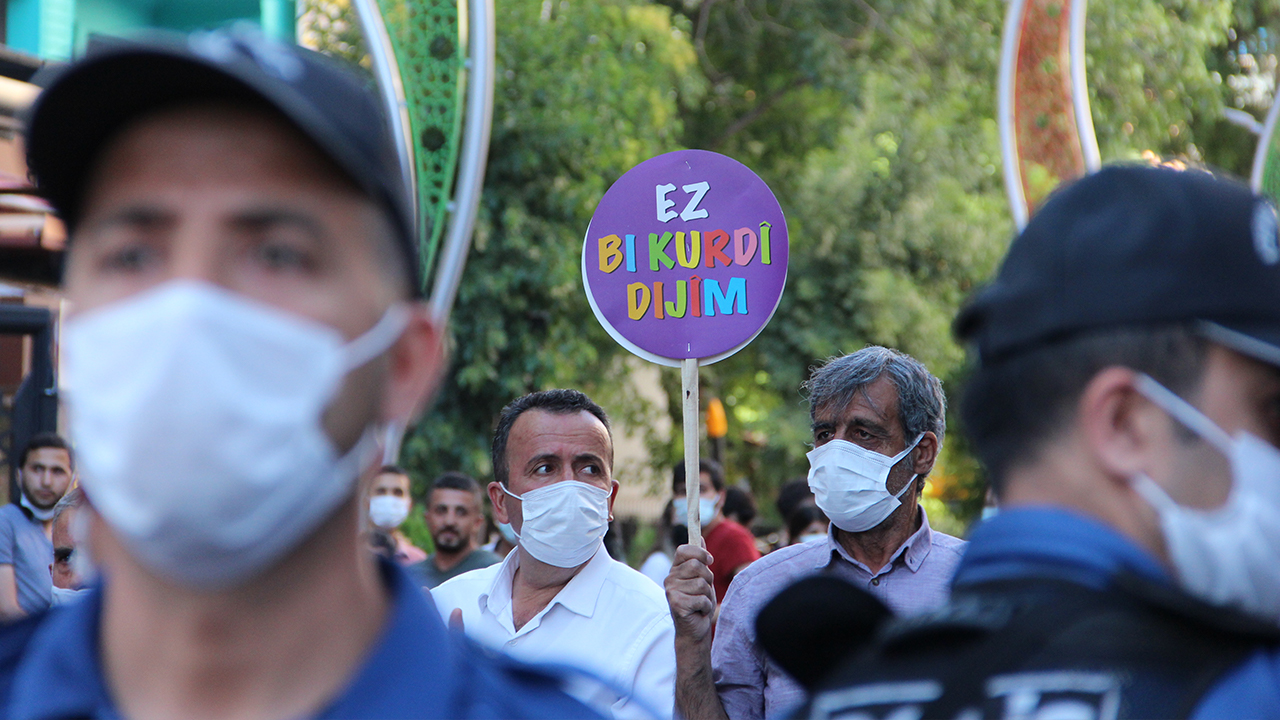While Turkey enters its 20th year under Justice and Development Party (AKP) rule, pressure on the Kurdish language has risen to peak levels with official and de facto bans, targeted harassments, and even deaths in connection to the Kurdish language, reported Mezopotamya News Agency.
The collapse of the so called peace process between Turkey and the Kurdistan Workers’ Party (PKK) in 2015 and a state-of-emergency crackdown on opposition forces in the aftermath of a failed coup attempt in 2016 resulted in increased pressure on the Kurdish language. Many institutions have been shut down, and there were even several deaths as people were targeted in racist attacks over the language they spoke.
A short history of the ban on Kurdish
Bans on the Kurdish language throughout Turkey’s history were mostly implicit and unofficial, but also influential. In 1958, Musa Anter published the lyrics to a Kurdish song in the İleri Yurt newspaper that was printed in Diyarbakır (Amed). He was arrested the following year over his articles. In 1977, Kurdish newspaper Roja Welat was born, only to be shut down by the 1980 military coup.
Kurdish was officially banned when the 1980 junta issued a blanket ban on all use of non-Turkish languages. The ban was lifted in 1991, the same year as when Kurdish members of parliament Leyla Zana, Orhan Doğan and Hatip Dicle were arrested for taking their parliamentary oaths in Kurdish.
Today Kurdish children still cannot get an education in their mother tongue, and non-Turkish languages spoken in the country are only offered as elective classes for two hours per week. In 2021, the Education Ministry hired three new teachers for Kurdish out of 20,000 new appointments, compared with 938 English, 503 Arabic and even 25 Russian teachers.
Kurdish was excluded from public services, including the KADES application, developed by the Interior Ministry to provide support for women subjected to domestic violence. The service is offered in Turkish, Persian, Arabic, English, French and Russian, but not Kurdish
Grassroots efforts were also hindered, with state of emergency decrees shutting down Kurdish language newspaper Azadiya Welat, Kurdish children’s television Zarok TV, the Istanbul Kurdish Institute, the cultural association KURDİ-DER, news agencies DİHA and Jinha, and various other NGOs focusing on the Kurdish language.
Despite pressures, many local governments with Kurdish elected mayors managed to implement multilingual services in Kurdish-majority provinces, while also providing services in other minority languages in certain areas.
However, trustees appointed by the political administration to replace the elected mayors (in cities and districts where the local election was won won by the Peoples’ Democratic Party), eventually removed all multilingual signage, cancelled services in Kurdish and Armenian, and shut down non-Turkish language pre-schools and after-school programmes, as well as services geared towards women, a significant part of whom don’t speak Turkish well or at all.
Kurdish deputies speaking in Kurdish in the Turkish parliament are not included in the parliamentary records, outside of a note saying an ‘unknown language’ was used.
Arts in Kurdish also face pressure and hindrances by officials.
People killed for speaking Kurdish
Since 2015 at least five people have been killed for speaking Kurdish, according to Mezopotamya News Agency.
Some incidents make the news but most go unreported or recorded. Some of the reported incidents are as follows:
Twenty-one-year-old Sedat Akbaş was killed in September 2015 in Istanbul, after being subjected to a racist attack by eight men on the street as he spoke Kurdish on the phone.
The following October, singer Selim Serhed was killed by a customer in the bar he worked at, following an argument over singing in Kurdish.
In December 2018, father and son Kadir and Burhan Sakçı were gunned down in the Sakarya province as they walked down the street, speaking in Kurdish. The father lost his life while the son narrowly survived with severe injuries.
In November 2019, seasonal agricultural workers Şirin Tosun and Mahsun Zeren were shot at by eight men in Sakarya for waving at a vehicle with a licence plate from a Kurdish city. Zeren survived the attack, while Tosun lost her life following 51 days in intensive care.
In June 2020, Barış Çakan was viciously attacked in a park in the capital of Ankara as he listened to Kurdish music with his friends. He did not survive the attack.
Construction workers Eren Sömer and Ufuk Çelik survived an attack in 2016, after speaking Kurdish among themselves.
In 2018, Fikret Aydemir was attacked by soldiers for speaking Kurdish.
In 2019, elderly couple Bedriye and Ekrem Yaşlı were beaten by a relative of a patient in a hospital in Çanakkale as they spoke Kurdish among themselves.
In 2020, the Istanbul Municipality-owned City Theatres wanted to stage a play in Kurdish, but the play Bêrû was banned by the governor’s office.
In a lawsuit against four HDP members, singing in Kurdish was cited among evidence of terrorist activity.
Prisoners are not given Kurdish language newspapers and letters in Kurdish they have been sent by relatives and loved ones. Prison administrations confiscated Kurdish language books and journals.
Prisoners have been issued with communication bans as punishment for their visitors speaking to them in Kurdish, while one prisoner was accused of ‘speaking in code’ regarding a conversation with his mother in Kurdish.
Kurdish politicians Leyla Güven, Hülya Alökmen and Fethiye Ok Çiçek were investigated while behind bars in the Elazığ Prison for ‘dancing and singing in an unknown language’ as they danced the traditional Kurdish govend with nine other female prisoners.
The United Nations celebrates February 21 as the International Mother Language Day, and the theme for 2022 is using technology for multilingual learning. Kurds and other non-Turkish speaking peoples in Turkey have celebrated the day since 2000.
Source:MedyaNews
***Show us some LOVE by sharing it!***


